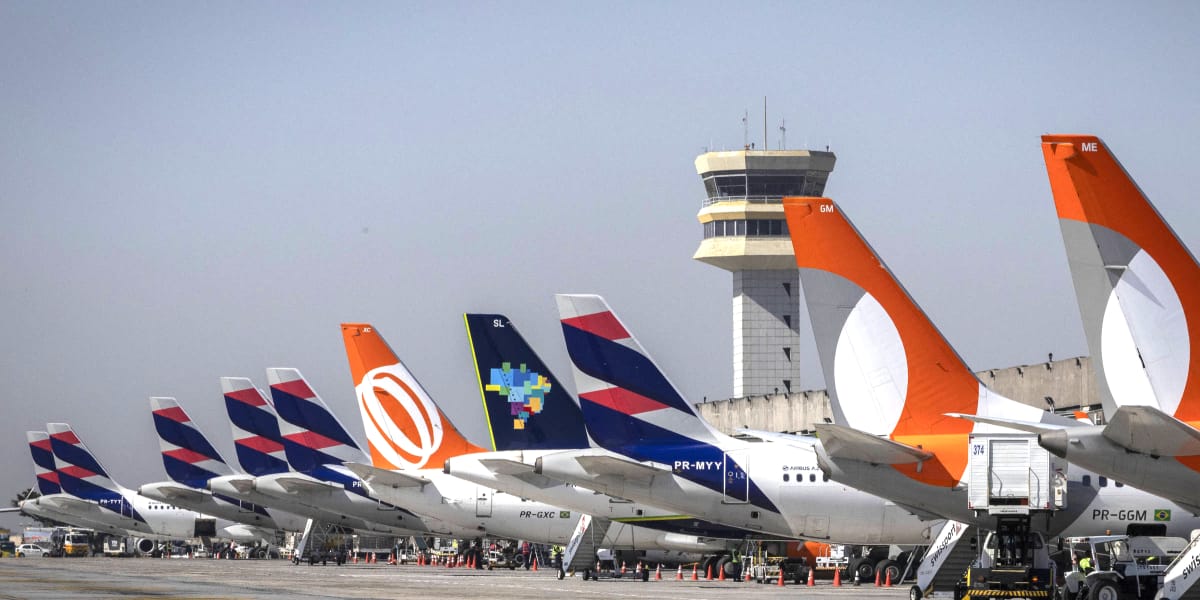
As in many other areas of public affairs, Argentine aeronautics is going through moments of severe political turbulence. On the morning of July 12, we woke up to the news that, a few days after the deregulation of the Argentine air market was decreed, the executive ordered the intervention of the highest authority in aeronautical matters.
The news was somewhat surprising, but the truth is that since the issuance of decree 70/23 and the subsequent declaration of emergency in economic, fiscal, administrative, social, and other matters, Milei’s government had ordered the deregulation of the market, but in more general terms. For this task, a commission was formed to regulate the modifications by resolution No. 6/24 of the Secretary of Transportation, dependent on the then Ministry of Infrastructure. When one reviews the argumentative elements that justify the political decisions in the statements and considerations, it is difficult to overlook that behind such a level of protocol, there are political, economic, and social consequences.
Airlines, manufacturers and importers of material for the industry, airport operators, international organizations that act as international employers’ associations such as IATA (International Air Transport Association) and AWG (Aviation Working Group) were consulted and participated in protecting their interests, all except the workers who, with their daily work, make such a complex system as the airport system work.
What are the changes and how do they affect workers and users?
Trying to explain in simple terms what we mean when we say open skies policy, it may be useful, for didactic purposes, to use the antagonism that exists between a protectionist regulatory legislation scheme and the proposed deregulation of commercial aviation. I would like to emphasize the word antagonism because the term is ultimately an expression of a confrontation of interests. What is not at all simple is trying to give a satisfactory answer to the questions that arise. Is it true that the matter is over-regulated and that it is the state bureaucratic apparatus that is responsible for limiting potential productive capacities? Can comparative standards with other markets serve as a reference to dictate drastic modifications without taking into account certain precautions, whether these are economic or in terms of operational safety?
Historically, our regulatory legislation has been characterized by a protectionist tendency, due in large part to the need to protect an industry with an international dynamic par excellence, from the dizzying voracity of international markets. However, we could conjecture that, if Mercosur had prospered at other levels, similar to, for example, the European Union, the need for adaptation would prevail and we would probably be talking about regional regulations today like those in Europe. That did not happen, therefore, an open model could have been constituted in the unrestricted surrender of national interests in something as sensitive as the transport of commercial value chains and the exploitation of the local and international tourism industry. In short, when we talk about air trade policy we are talking about sovereignty.
But the “opening” process was not born with the news of its confirmation to extremes of which there are no records, but rather it is the result of the dependence on Argentine capitalism. It would be fictitious to pretend to analyze the Argentine air market apart from its historically dependent economy. The intention of this note is not to review history but rather to criticize the present.
Already during the Macri administration, with its “airplane revolution” program, progress was made in terms of deregulation, for example, in the suspension of tariff bands for airlines, which enables “unfair” competition strategies known as “dumping,” which is nothing more than working at a loss to undermine the competition in an attempt to monopolize weak markets. This is important for the defense of Aerolíneas, against privatization. Although it was not included in the Law of Bases, this commercial aviation policy, together with the lack of funding of the current government, puts the flag carrier at risk.
Another aspect to be noted is the progressive adoption of LARs in regulatory matters to replace national regulations. In this regard, it should be noted that although the Argentine state is a member of the ICAO (International Aviation Organization) and must respect the regulatory framework, on the other hand, the legislation contained in the RAAC contemplates protection aspects ranging from labor conditions complementary to general legislation, to conditions that must be observed by air operators authorized to operate in the national market.
During Alberto Fernández’s government, this trend towards deregulation continued to slow down, but the open skies policy proposed by the current government proposes reducing the participation of the Argentine state to a minimum, directly adopting international regulations adapted to the needs of foreign operators. Until the issuance of decree 599/24, an air transport company interested in operating cabotage services had to hire Argentine personnel and comply with local regulations on aeronautical and labor matters.
From the point of view of the consumer of airline tickets, it is impossible to ignore the temptation to think that the promotion of competition leads to the reduction of fares paid for the service. One assessment in this regard is that, although the entry of new operators dynamizes the offer, making them more accessible in principle, it has its counterpart in terms of connectivity: the least profitable stopovers would be directly abandoned, since the profit in passenger transport is measured in terms of cost/occupancy, dividing the number of seats x unit of cost per kilometer traveled. If fares are expensive today, it has more to do with the price of fuel and investment in security than with the salaries of workers.
In the commercial aviation sector, competition also takes on particular characteristics. Years ago, airlines discovered that, in terms of meeting the demand for regional passenger transport, mainly for tourism purposes, the adoption of code-sharing agreements was a good commercial strategy that benefited those who signed them, and was complemented by bilateral agreements between the states of origin. The level of openness proposed by Milei’s government not only has no precedents, but it does not apply in the countries that invented and exported the model. It is virtually impossible for Aerolíneas Argentinas to try to exploit domestic transport in the US or even Chile. Although the current laws of the US formally allow the intervention of foreign companies in its commercial aviation market, in practice it is practically impossible for this to happen since there are also multiple regulatory obstacles and authorizations that prevent an open policy. What the promoters of deregulation claim is a lie when they say that this system is what governs the whole world.
The experience of the 90s.
During the nineties, the Menem administration adopted an open skies policy at the height of the neoliberal model. The result was that the population did not have access to a means of transport considered a luxury for many, and the relaxation of safety standards led to the worst aviation accident in the history of our country. The adoption of an open skies policy necessarily implies relaxing the collective agreements of the sector’s workers and their working conditions. In the name of competitiveness, their working conditions are made even more precarious and their salaries are reduced.
One last consideration: talking about open skies policy necessarily means talking about job insecurity, even though officials prefer to use euphemistic terms, “optimization of resources.” Along with this, it means promoting profits at the expense of operational safety: the airport and technological infrastructure used by air navigation services have been operating at the limits of their capacity for years. No multinational is going to be interested in investing if it is not obliged to do so. In other words, the possibility of cheaper tickets only to the most in-demand destinations has as a downside greater job insecurity, deficits in operational safety and reduced connectivity with regions further away from the capital.
Meanwhile, the workers in the sector are systematically attacked by the stigmatizing narrative of officials and mass media; the loss of labor rights and jobs is the daily picture of the reality they experience. Whether it is Aerolíneas Argentinas, Intercargo, Eana or Anac, for this government, workers with their methods of organization and defense are part of the problem to be eradicated, since they are the ones who guarantee the functioning of the system and operational safety. Despite all the attacks and this offensive on deregulation, we workers have shown that we have the strength to confront these policies and defend Aerolíneas and our working conditions, but the FAPA union leadership has shown that it is not up to the task.
Source: www.laizquierdadiario.com

